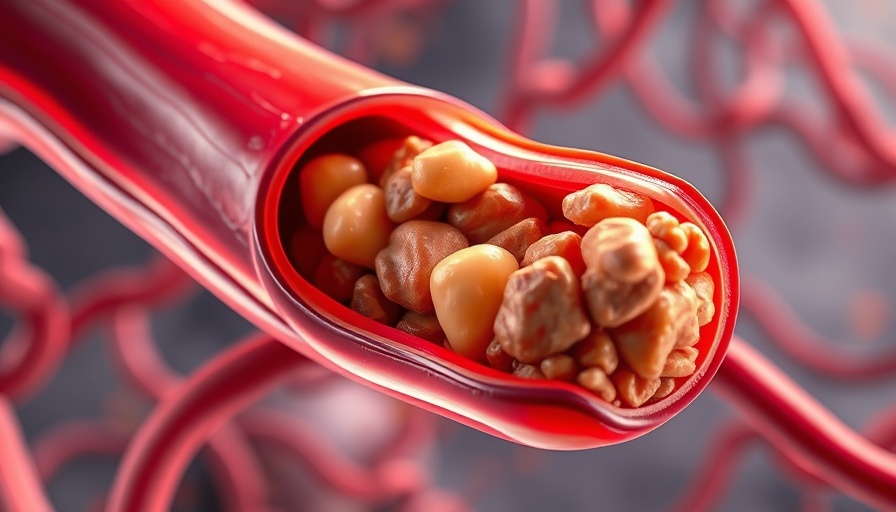
The Promise of Inclisiran: A Breakthrough in Cholesterol Management
In the quest for effective cholesterol management, a recent study has thrown the spotlight on Inclisiran, a novel treatment shown to be safe and effective for lowering LDL cholesterol (often referred to as 'bad cholesterol') among low-risk patients. This innovative drug has emerged as a potential game-changer in cardiovascular health, especially for individuals who may not necessarily qualify for more traditional cholesterol-lowering therapies.
Understanding LDL Cholesterol and Its Risks
LDL cholesterol is known to be a significant contributor to heart diseases, including atherosclerosis and heart attacks. The traditional approach focuses primarily on high-risk patients, often prescribing statins as a first line of defense. However, this recent study indicates that Inclisiran may also benefit low-risk individuals who have slightly elevated LDL levels, expanding the discussion around prevention and treatment strategies.
How Inclisiran Works: A Revolutionary Mechanism
Inclisiran stands out from conventional treatments due to its unique mechanism. Unlike statins that function by inhibiting cholesterol production in the liver, Inclisiran employs RNA interference technology to target and silence the mRNA responsible for producing PCSK9, a protein that increases LDL levels in the bloodstream. By reducing the activity of PCSK9, Inclisiran effectively lowers LDL cholesterol, making it a pioneering approach in lipid management.
The Study's Findings: Key Highlights
The recent clinical trial followed 300 low-risk patients over a 12 month period, revealing remarkable results. Participants treated with Inclisiran experienced a significant reduction in LDL levels, averaging a decrease of about 50% from baseline figures. Additionally, the treatment exhibited a favorable safety profile with minimal reported side effects, making it an attractive option for patients looking for effective cholesterol management.
The Broader Impact on Health Strategies
With cardiovascular disease being the leading cause of death globally, the implications of this study could reverberate throughout healthcare systems. Incorporating Inclisiran into treatment guidelines for low-risk patients could aid in the prevention of heart diseases at a much earlier stage, resulting in better health outcomes and potentially reducing long-term treatment costs associated with managing chronic conditions.
Future Predictions: Inclisiran's Role in Preventive Medicine
As healthcare continues to evolve, predictions around the role of Inclisiran and similar therapies suggest a future where preventive medicine is prioritized. With a growing body of evidence supporting its efficacy, Inclisiran could become a staple in the treatment arsenal for both high-risk and low-risk patients, leading to a paradigm shift in how cholesterol is managed.
Addressing Concerns: Counterarguments and Diverse Perspectives
While the study highlights the promise of Inclisiran, it also prompts discussions about accessibility and the costs involved in acquiring new treatments. Critics argue that the focus should remain on lifestyle modifications—diet and exercise—before stepping into pharmacological interventions for low-risk patients. Striking a balance between innovative treatments and proven lifestyle changes remains crucial.
Conclusion: Embracing New Frontiers in Cholesterol Management
The findings surrounding Inclisiran illustrate a significant advancement in lipid management, particularly for low-risk patients. As the medical community continues to explore the implications of this study, it is essential to recognize the importance of both new treatment modalities and traditional lifestyle changes in combating cardiovascular disease.
For patients and healthcare providers alike, understanding these developments will be pivotal in shaping future treatment strategies. The conversation surrounding Inclisiran could potentially redefine how we view cholesterol management in everyday patients, making it vital to stay informed on this emerging treatment.
 Add Row
Add Row  Add
Add 




Write A Comment